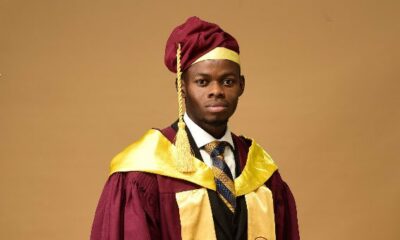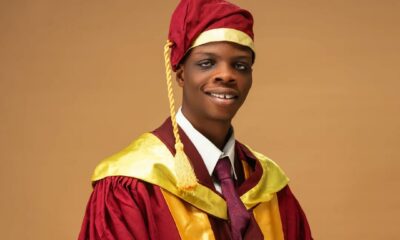Inspired
Matthias & Matthew Busoye Share the Story Behind Their First Class Graduation
In this exclusive feature, discover the inspiring story of Matthias and Matthew Busoye, twin brothers who graduated top of their class at the University of Ibadan.
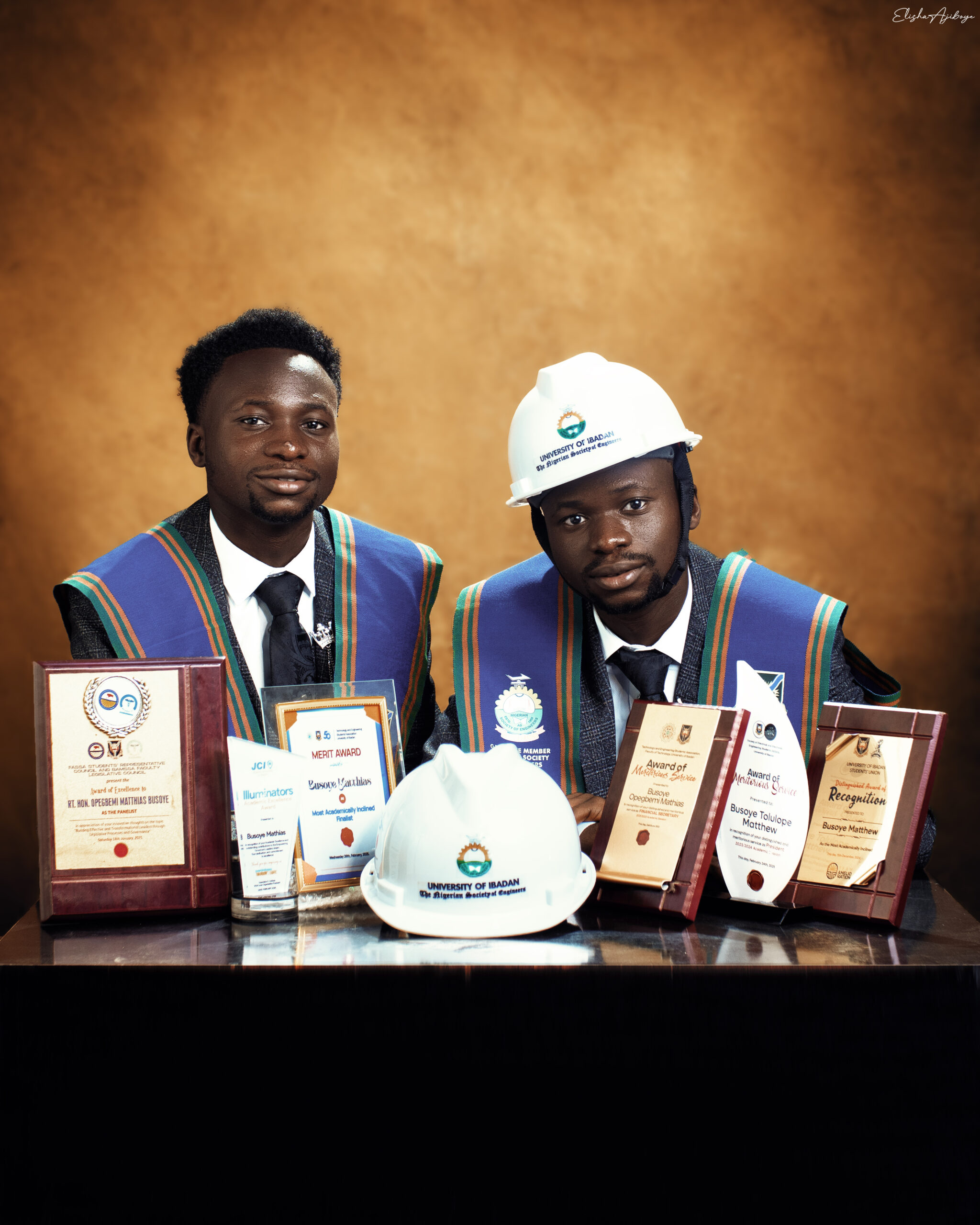
At Nigeria’s premier university, where excellence thrives and ambition runs deep, two brothers walked the same stage and carved their names into history. Matthew and Matthias Busoye, identical twins with a shared dream and matching CGPAs of 3.94 out of 4.00, graduated with First Class honours in Electronic and Electrical Engineering from the University of Ibadan. Not only did they lead their department, they emerged as the best graduating students in the entire Faculty of Technology for the 2023/2024 academic session.
What makes their story extraordinary isn’t just the near-perfect grades, but the remarkable symmetry of their journeys. Matthias served as Speaker of the 11th Assembly of the UI Students’ Representative Council, while Matthew led as President of the Society of Electronic and Electrical Engineering Students (SEEEES-UI). Through the demands of leadership, late-night study sessions, personal setbacks, and unwavering faith, they pushed forward.
In this exclusive interview, we get to chat with the Busoye twins, and they reflect on the path that led them here. The quiet sacrifices, the shared laughter, and the moments that shaped their triumph. Their story is more than a celebration of success; it is a mirror held up to every student with a dream. It’s a reminder that First Class honours are not reserved for the few, but within reach for those willing to commit, persevere, and believe.
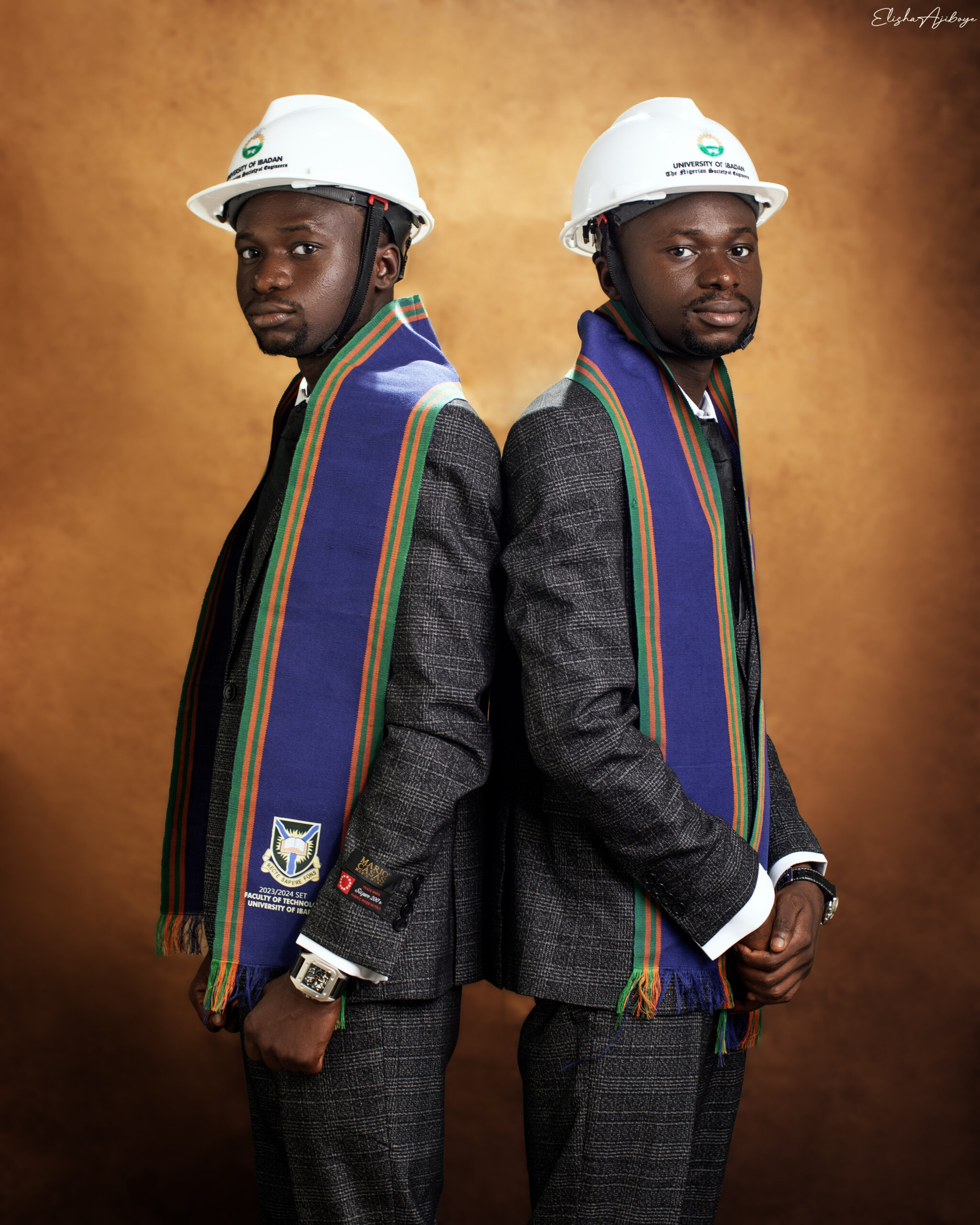
***
Graduating with First Class honours is an incredible milestone, and doing it together as twins makes it even more memorable. What emotions ran through your minds in that moment, and did you take a second to reflect on how far you’d come together?
Matthias: The moment we realised that it was going to happen, it was so surreal. We took a second, actually, we took more than a second; because the plan was always to do as well as possible, even aiming for a 4.0 GPA.
But since we couldn’t achieve that, we just did our best. We always believed it could be one of us, and towards our 400 level, it was also assured.
When it became clear it was going to be two of us, I remember thinking, “Oh, what are the odds?” It was really beautiful, seeing all the hard work pay off, not just for me, but for my brother and my mother. It was truly beautiful.
Matthew: Honestly, what ran through our minds was pure joy. It was truly an outstanding moment. Finishing first class wasn’t exactly surprising, as we had seen it coming since our 300 level. What made it even more special was that we both graduated as best Graduating students with an impressive CGPA. Maintaining such a high CGPA gets harder as you advance, so achieving that at the end felt incredibly fulfilling.
It was a moment of pride, especially knowing we had made our mother proud. We took a moment to reflect on how far we had come—not just academically, but holistically.
Beyond the grades, we were able to hold leadership positions, engage in volunteer work, take on technical roles, and grow both personally and professionally. Those experiences meant a lot and gave us a solid foundation for whatever lies ahead.
Growing up as twins often comes with a built-in support system. How did that bond show up during your time in university, especially during the tough academic stretches?
Matthias: We never really studied together, but we helped each other academically very well. He was the person that helped me the most when it came to tough questions, assignments, and things that needed explanation. Sometimes we brainstormed together too. Having that kind of support was huge.
There were times I had to miss classes because of extracurricular activities, but having someone in my department that I could always bank on made a big difference. He made sure I got the help I needed.
Matthew: Though we didn’t often read or study together, we supported each other in meaningful ways. When one of us needed help, the other was always there—not just with solutions, but with encouragement.
We inspired one another during moments of low motivation and reminded each other of the bigger picture. That constant reinforcement helped us navigate the demanding balance between academics and our many extracurricular commitments.In the end, we kept each other grounded, and that support made all the difference.
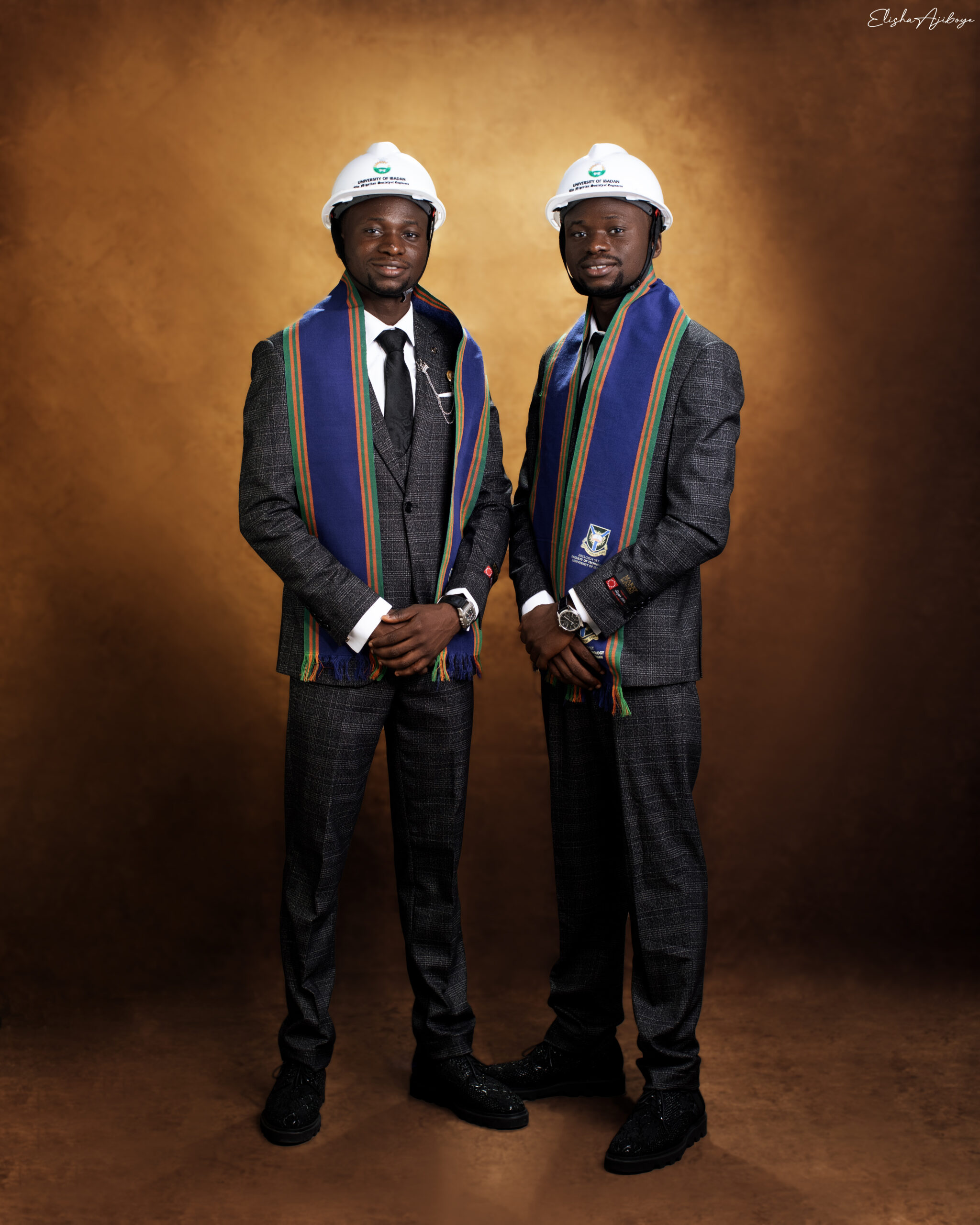
Did you approach school as a team from the beginning — studying together and setting goals — or were there times you had to carve out your own individual rhythms?
Matthias: From the earlier stages, we really did not read together. In terms of the plan, yes, the plan was always to do well, and that was almost everyone’s plan coming into the university. But we had individual paths and different learning patterns.
We didn’t study together, in the traditional way but the was always there, as a motivation , to gear ourselves, when I’m stuck and I need help he was there especially brainstorming for the tough questions.
Matthew: As I mentioned earlier, we didn’t really study together—we each had our own unique approach to learning, even though our paths were quite similar in direction.
When it came to leadership, for instance, we took very different routes. He focused more on faculty and university-level roles, while I concentrated on departmental leadership and technical responsibilities.
In the end, we both carved our own distinct yet parallel paths, each making an impact in our own space and at different levels.
Many people assume a First Class at a federal university is out of reach. What was your mindset around this?
Matthias: We never really talked about “First Class” per se. The goal was always a 4.0 GPA. So when it came to the fear or pressure of making First Class, we knew it would happen if we simply did the right things.
It wasn’t a question of “if” but “how high” we could make it. We knew our ability and knew if we put in the work, we’ll get the results. In the end, with a sprinkle of grace things went better than expected; it was just fulfilling.
Matthew: Personally, I don’t believe that graduating with a First Class is something unattainable. I’ve always believed that knowledge is never out of reach—after all, it’s the product of someone else’s thoughts. If someone could think it, then I should be able to understand it. That’s been my mindset from the start.
To me, success in academics is rooted in believing that everything taught can be understood. That shift in mentality made all the difference for us. We approached every subject with the mindset that nothing was beyond our grasp, and that confidence helped pave the way to our results.
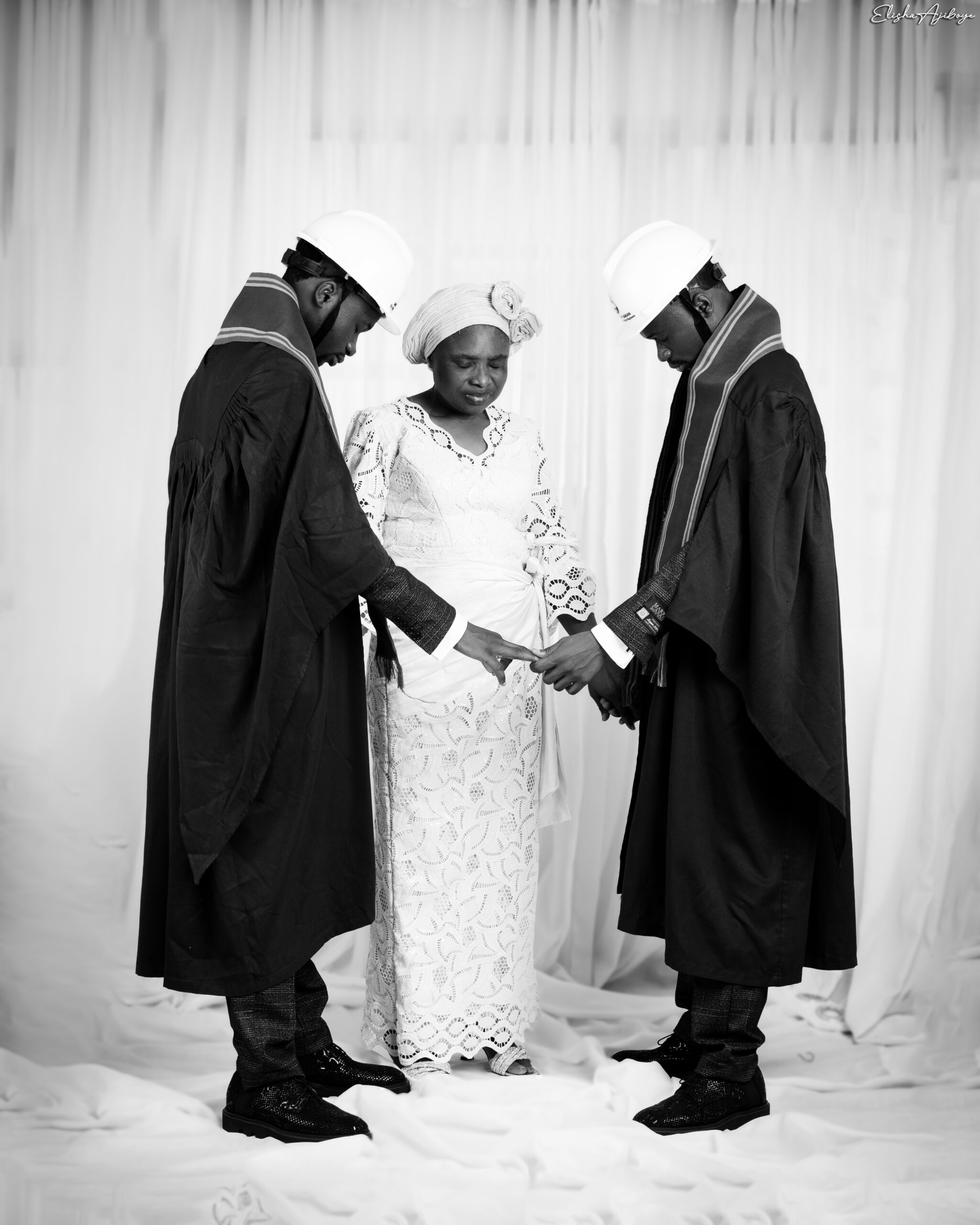
Were there any low points, moments when you felt burnt out or questioned your path? How did you manage those moments, both as individuals and as brothers?
Matthias: There were several low points, especially trying to balance academics and extracurriculars. It was honestly really difficult. One major low point was my final year. I was the Speaker of the Student Union, managing project work, and also my academics.
Things were particularly tough towards the beginning and end of the year. The beginning was marked by a major protest; the end was dominated by organising events, the major, was the Model United Nations – the first of its kind in UI, which made it harder.
Handling funding, registration, approvals, it was a lot. There were times I almost missed classes, and when exams came close, I still had so much left undone for my project.
I almost gave up at some point – just focusing on the event and deciding to settle for whatever grade I would get. But my friends encouraged me to just give it my best shot. In the end, when I saw the results – not just that I graduated well, but that both of us became BGS (Best Graduating Students) – it felt surreal. I was so glad I didn’t give up.
Matthew: I would say one of our lowest points in the university came in our final year, when the workload became overwhelming and motivation started to fade. So, how did we still manage to do well? We simply made the most of the little time and energy we had, constantly trying to balance everything through dynamic prioritisation.
Even though it was tough, we supported each other in small but meaningful ways—like calling one another about upcoming tests. We also tried to inspire and motivate each other during those low moments. It was those little efforts that made a big difference and helped us push through.
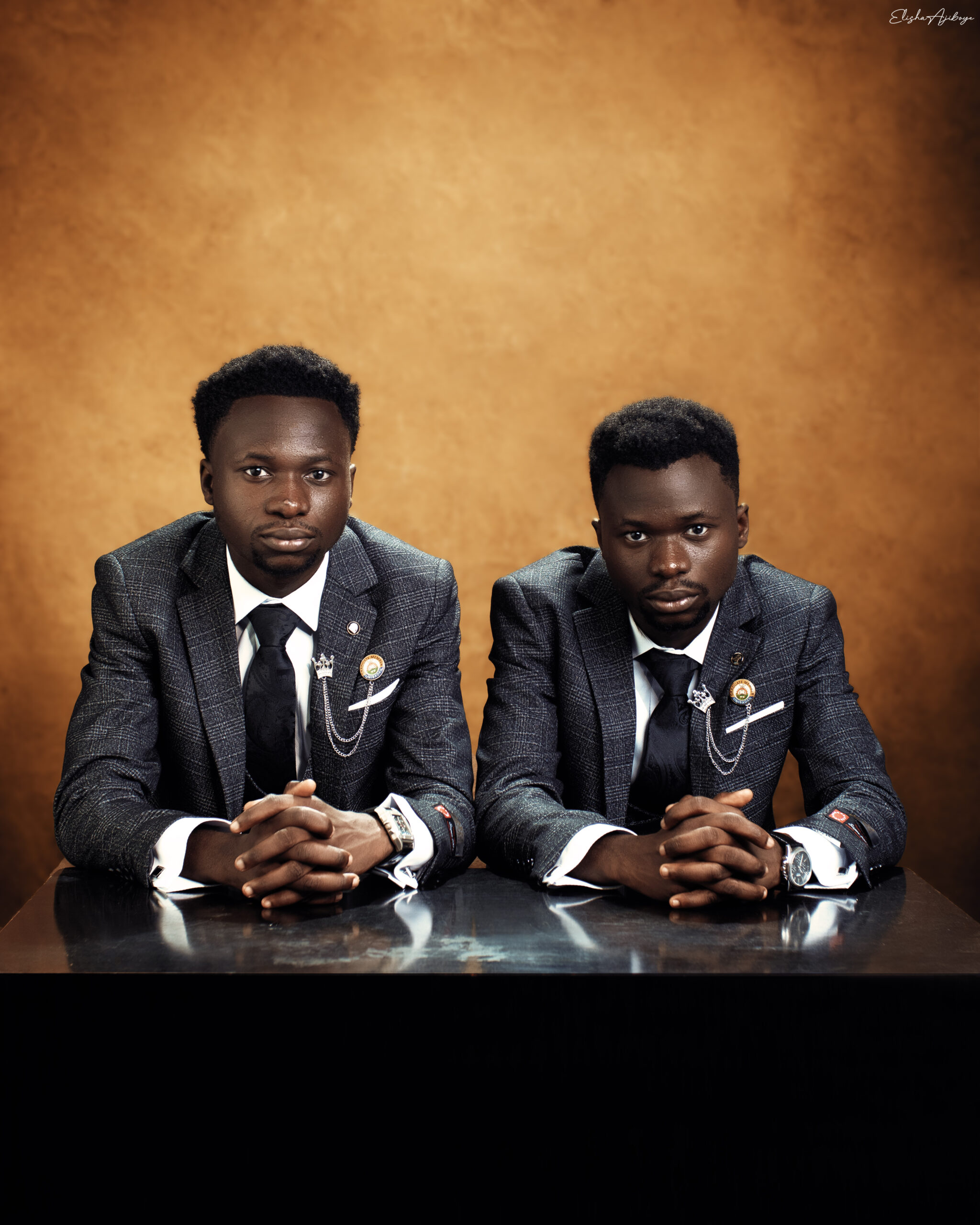
What role did friendships or mentors outside your twinship play? Were there lecturers, peers or other people who shaped your journey in meaningful ways?
Matthias: My friends and mentors were crucial in this journey. My close friends (Ejiro and Christabel) were there for me throughout. My classmates, The Elect Endgame were very important, the tutorial, the group project, the tdbs and materials. Mentors who had graduated before us gave us invaluable tips, how to approach academics, how to manage workloads, and generally how to navigate the university system. Because of them, it wasn’t a blind journey. They gave us structure and guidance.
Matthew: Friendship played a very important role in our journey. To mention a few, Precious Ogundele and my friends at Zik Hall were instrumental in helping me balance academics with the demands of extracurricular and leadership responsibilities.
On the academic side, I’m deeply grateful for the guidance and support of my supervisor, Prof. Olakanmi, my Head of Department, Dr. Odeyemi, and Prof. Omobolowa. Their mentorship and encouragement were pivotal, not just in my academic growth, but also in navigating the responsibilities that came with leadership.
Life after graduation comes with its own kind of pressure. Have your shared academic wins shaped how you’re thinking about the future — whether professionally, personally or
creatively?
Matthias: Graduation has brought a lot of pressure. Postgraduate life isn’t scripted, there’s no textbook for it. You have to find your own way. Fortunately, not just academics but extracurriculars and leadership experiences have prepared us for life for balancing things, for self-management, and for navigating life independently.
Right now, my plan is to pursue a Master’s or Postgraduate programme in Embedded Systems and AI to specialise and gain more experience.
Matthew: I would say my current academic success has only reinforced my confidence and strengthened my drive to pursue even greater impact and achievements in the future. As I look forward to postgraduate studies, I do so with the assurance that no matter how challenging it may be, if we could accomplish what we did in the past, then there’s even more we can do and overcome moving forward.
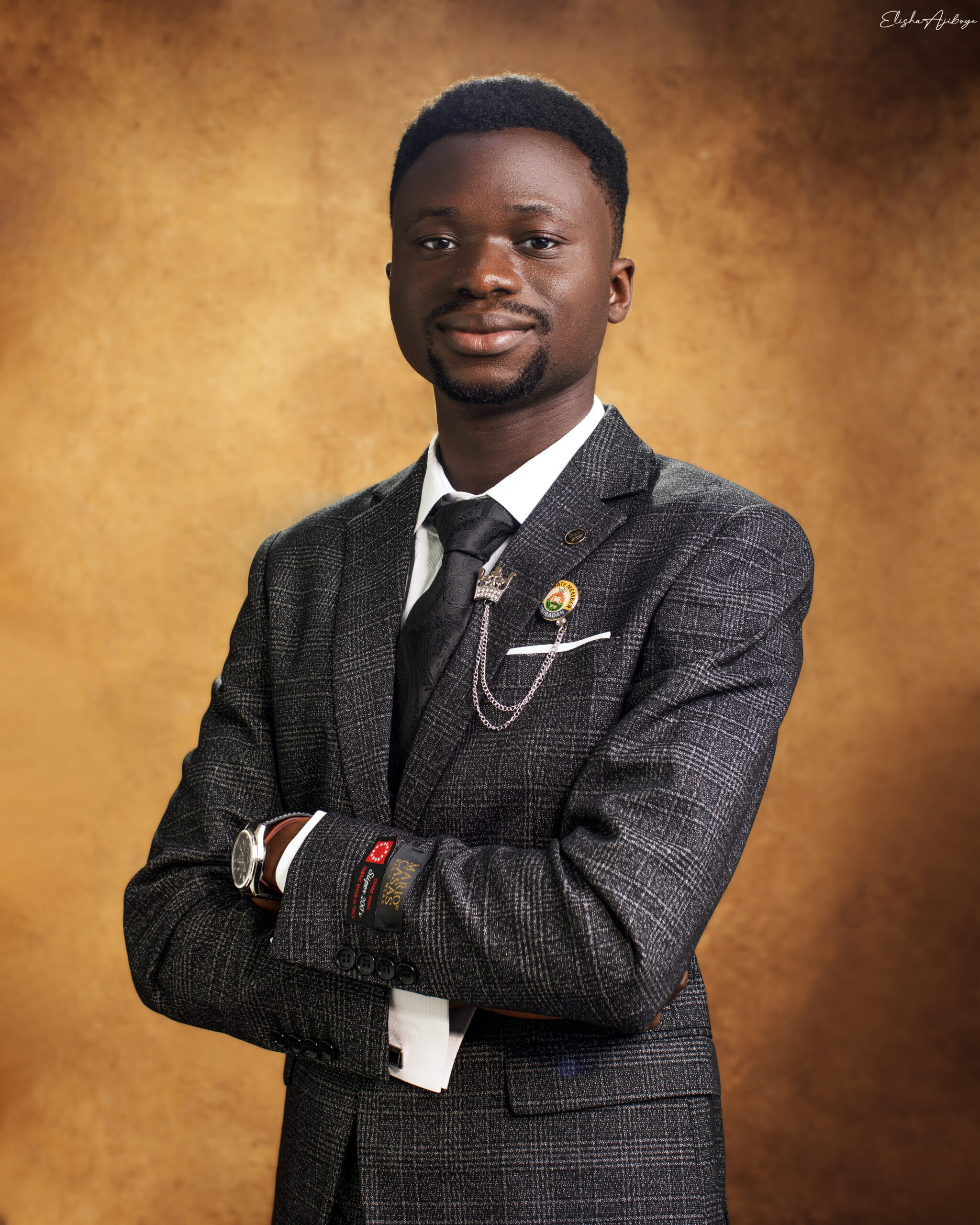
For students walking a similar path, what’s something you’ve learned that you wish someone had told you earlier? What would you say to encourage them?
Matthias: First, get your motivation right. University is a long journey (four, five, or six years) and there will be difficult days. When things get hard, you’ll need something deeper to keep you going. For me, it was my
mother and the sacrifices she made. Second, don’t fall victim to peer pressure. University is full of opinions and advice. Listen, but make sure you choose what truly works for you.
Not every advice will fit your journey. If you keep jumping from one idea to another, you’ll end up lost. Find what suits you and stay focused on it.
Matthew: I would say, know yourself—that is your greatest strength. Be at peace with yourself as long as you do your best, and learn to pick yourself up when you’re down. As I always say, falling is a step toward rising, and everything is all about mindset.
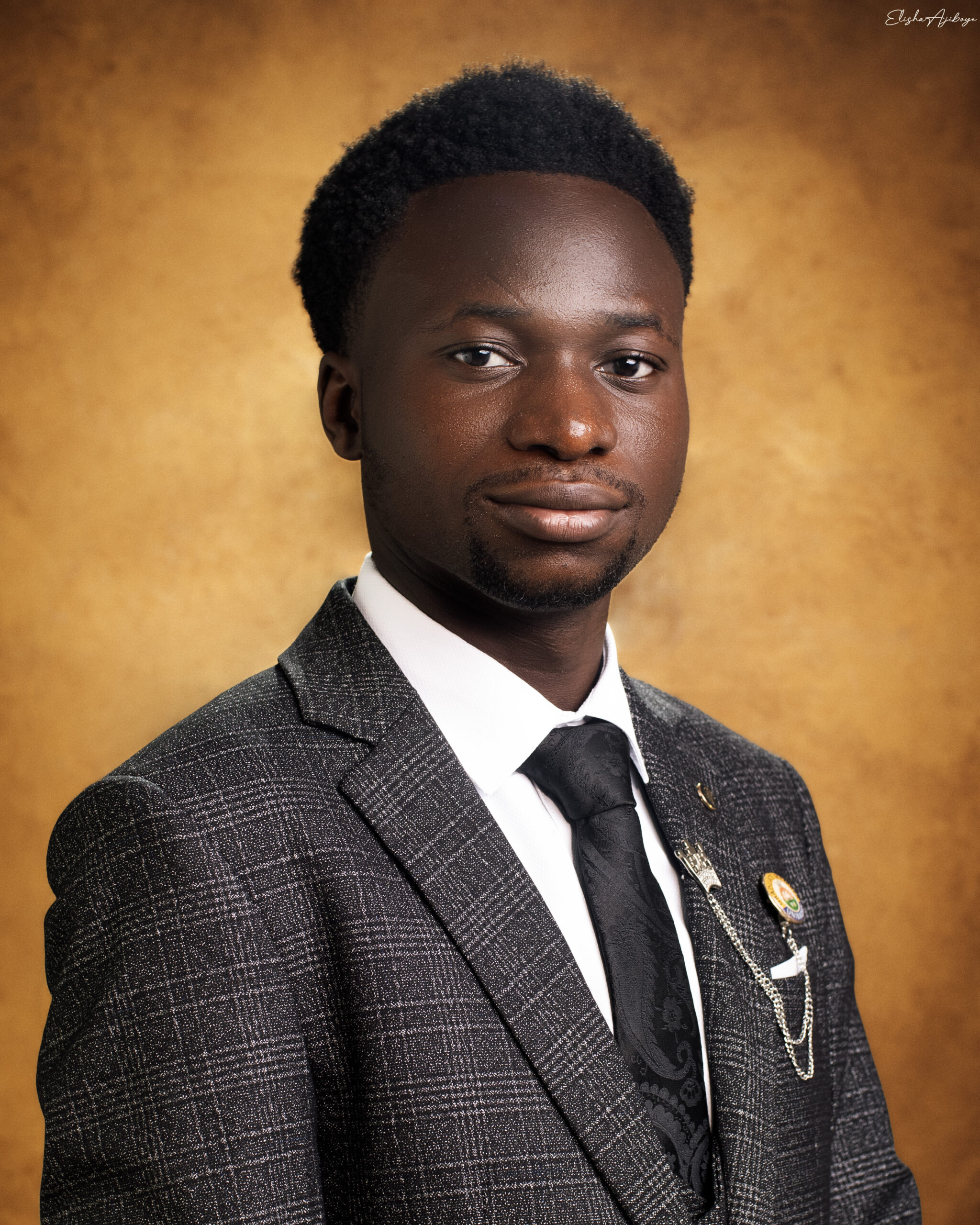
***
Photo Credits: Mattias and Matthew Busoye


